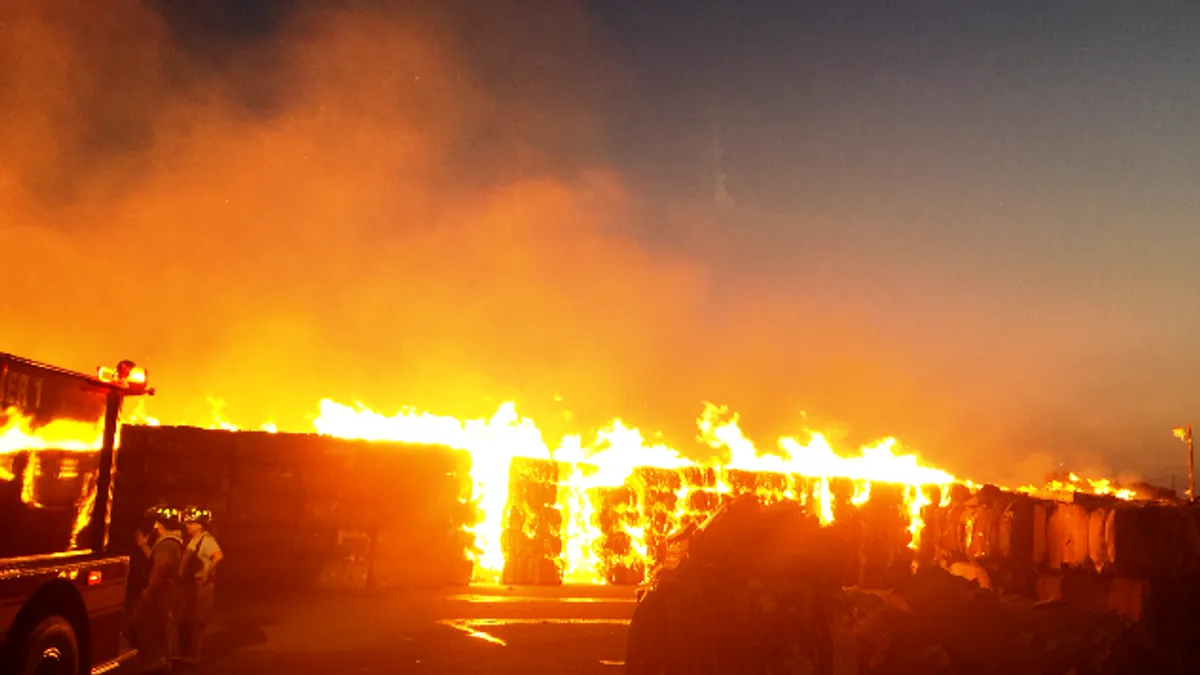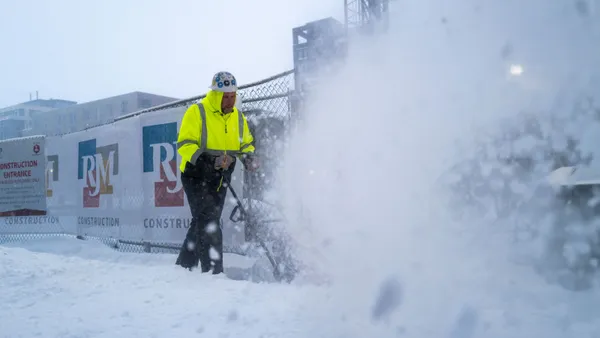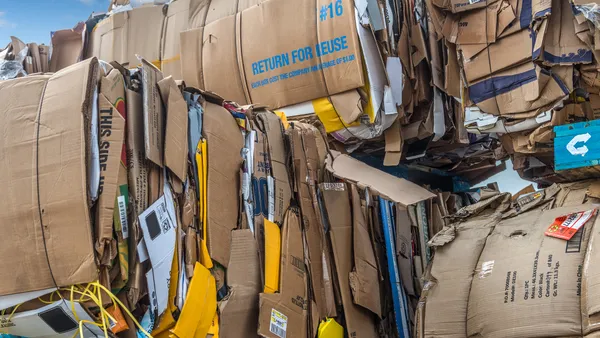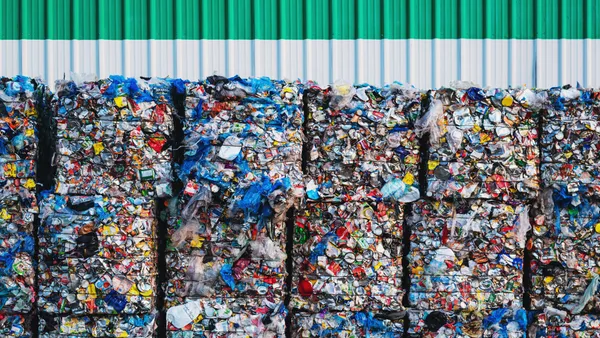Dive Brief:
- In a recent LinkedIn post, Fire Rover Vice President of Business Development Ryan Fogelman highlighted the lack of available data on waste and recycling facility fires that occur throughout North America.
- In an attempt to estimate how often fires happen, Fire Rover looked at data from the U.K.'s Chief Fire Officers' Association (CFOA), which reported 250 fires across waste & recycling facilities in 2015. Through extrapolation of population alone, it was estimated that well over 1,500 fires happen across the U.S. and Canada annually.
- Fogelman wrote that from February 2016 to July 2016, searchable news articles only reported 150 fires across North America, ranging from small incidents to "complete burnouts." He suggests, however, that there are a significant number of non-reported fires happening daily.
Dive Insight:
It is almost a daily occurrence that a fire breaks out at a waste or recycling facility in the U.S. or Canada due to anything from a chemical reaction to flammable material entering a shredder. In just the past week, the media covered facility fires in Lorton, VA, Newbury Park, CA, Columbus, OH, and Lockport, NY — and those are just the ones that were actually reported.
Due to the commonality of these incidents, it is worrisome that such data is not easily available for review. And while their commonality often causes them to go unreported — even by local media — that does not mean the fires are unimportant. The safety, environmental and economic risks that occur with each fire should be indicative of companies making fire prevention a priority.
"Every fire is one too many, especially when viewed in the light of the injuries sustained during these events," wrote Fogelman in the LinkedIn post.
While many facilities implement safety technologies like alarms and water suppressants — and Fire Rover offers a unique "proactive fire technology" that detects thermal anomalies, able of stopping a fire before it starts — it is clear that the industry needs more awareness and education on this matter to prevent hazards moving forward.













